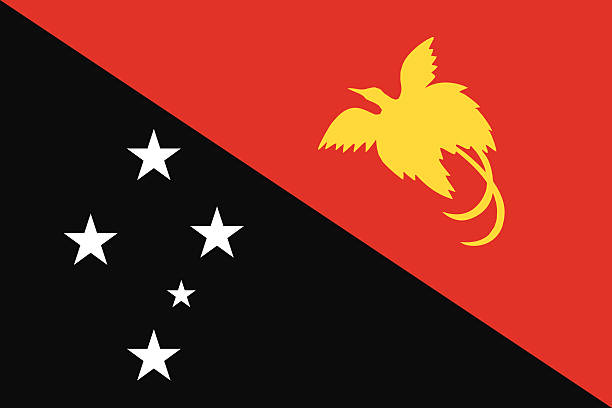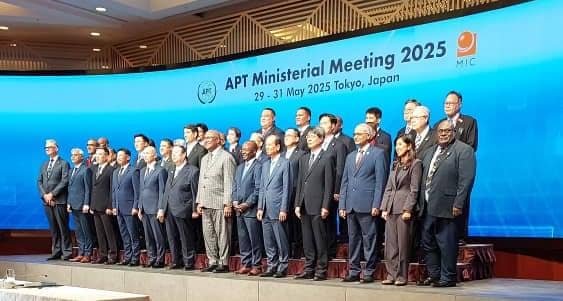Tokyo, Japan – Friday 30th May, 2025

Papua New Guinea’s Minister for Information and Communications Technology Hon. Timothy Masiu, delivered a compelling address at the Asia-Pacific Telecommunity Ministerial Meeting, emphasizing the urgent need for inclusive digital transformation across the Pacific region.
Speaking before an international audience, Minister Masiu highlighted Papua New Guinea’s unique challenges and aspirations in the digital era.
“Technology offers a bridge—over rivers, through mountains, and between people,” he stated.
“For a country with over 800 languages and many rural communities, digital innovation must be more than just about apps or devices—it must be about access.”
He stressed that digital inclusion is essential for meaningful development.
“Growth that benefits only the cities and leaves rural communities behind is not progress—it is inequality in a new form,” Masiu warned, calling for investment in digital infrastructure that reaches even the most remote areas, ensuring affordable internet access for all citizens, not just the urban few.
The Minister also reaffirmed Papua New Guinea’s commitment to regional cooperation through the Lagatoi Declaration, endorsed by Pacific ICT Ministers.
“This is not just an agreement on paper—it is a regional roadmap toward a digital future that reflects Pacific values: community, respect, and leaving no one behind,” he said.
The declaration promotes reliable ICT infrastructure, digital inclusion for marginalized groups, and indigenous innovation.
Masiu expressed a vision where digital growth empowers, rather than erases, cultural identity. “I want to digitize my rich culture, my stories, my music, and my languages,” he emphasized. “Innovation does not mean copying others. It means creating solutions that make sense for our people, our culture, and our way of life.”
He called for a united effort among governments, the private sector, civil society, and international partners to build an inclusive digital future.
“No single actor can build a digitally inclusive Papua New Guinea on their own,” he asserted.
Public-private partnerships, digital literacy initiatives, and support for local tech startups are key areas Masiu sees as critical for the country’s digital development.
“In the Pacific, we still need to empower our local tech startups, support women in ICT, and create digital jobs that keep our talent at home,” he said.
Despite the logistical, financial, and cultural challenges ahead, Minister Masiu concluded his remarks with optimism.
“The way forward is to invest boldly in digital infrastructure, educate and empower our people—especially those in rural areas—innovate with inclusion at the heart of our strategies, and grow together,


